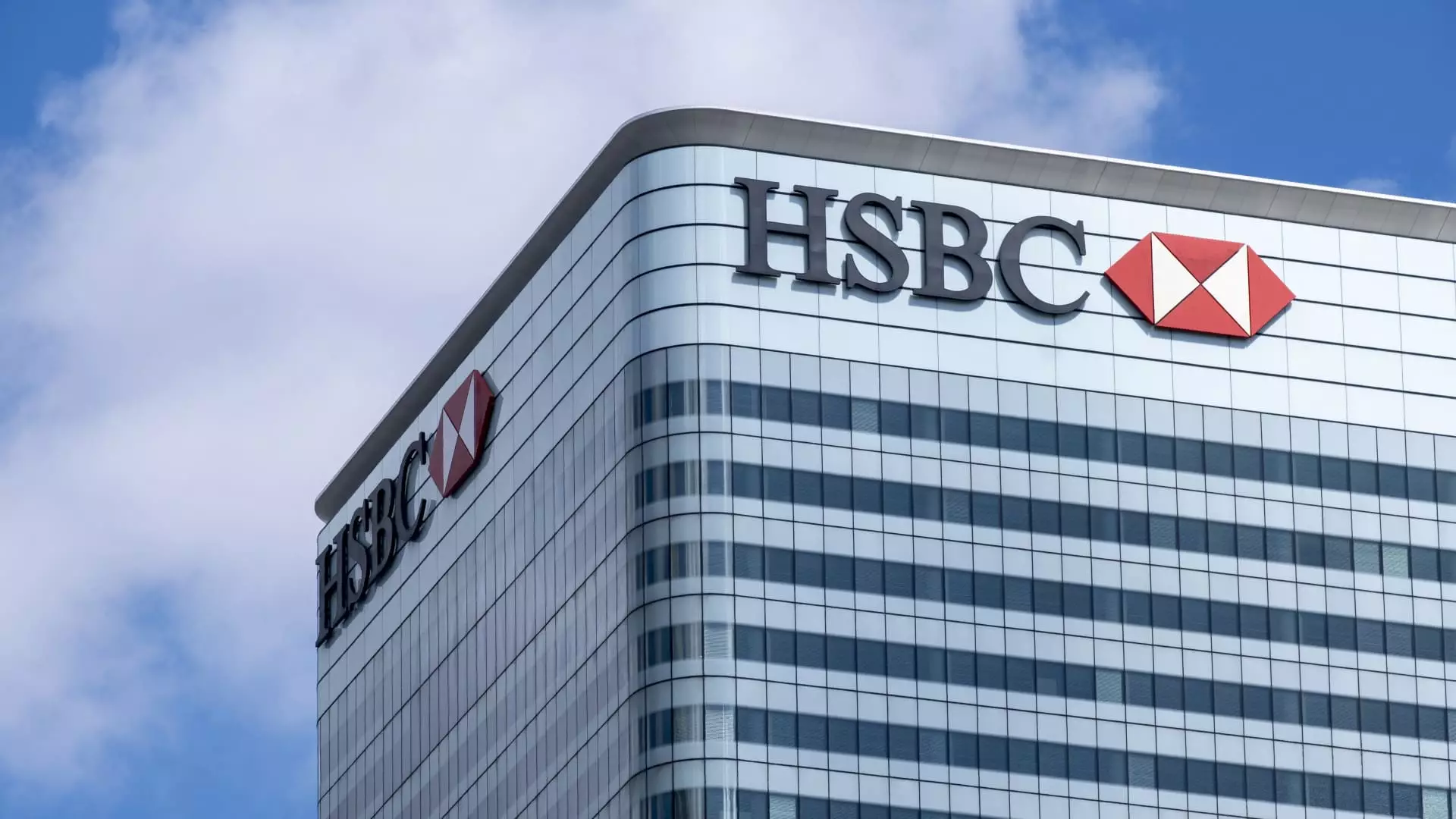HSBC Holdings plc, Europe’s largest banking institution, has recently unveiled its third-quarter earnings, demonstrating performance that outshines analysts’ expectations. The bank reported a pre-tax profit of $8.5 billion, surpassing the estimated $8 billion. A look at the details reveals that HSBC’s revenue for the quarter reached $17 billion, marking a healthy growth when compared to the $16.2 billion reported in the same quarter the previous year. The notable 10% rise in pre-tax profits from $7.71 billion recorded a year prior indicates a stable upward trajectory for the bank despite challenges in the broader banking sector.
Following this positive financial disclosure, HSBC announced a share repurchase program totaling $3 billion. This buyback is part of a larger initiative, which has seen the bank unveil a cumulative $9 billion in share repurchases this year. Such actions not only signal confidence in the bank’s financial stability but also aim to enhance shareholder value, making it an attractive option for investors amid fluctuating market conditions. Additionally, the board has approved a third interim dividend of 10 cents per share, further demonstrating its commitment to returning capital to shareholders.
In recent years, banks like HSBC have reaped significant benefits from rising interest rates, which have bolstered net interest income levels. However, concerns are emerging as this era of increasing rates shows signs of tapering off. HSBC’s net interest margin fell to 1.5% from 1.7% year-over-year, bringing into focus a crucial area of profitability that may come under pressure if interest rates continue to decline. Some analysts express caution about the bank’s future profitability in a potentially softened rate environment. Michael Makdad, a senior equity analyst at Morningstar, noted that, despite narrowing margins, banking net interest income remained stable, illustrating HSBC’s adeptness at navigating these changes effectively.
In addition to its earnings report, HSBC is also undergoing notable operational changes aimed at streamlining its processes and management structure. The recent appointment of Georges Elhedery as CEO, following Noel Quinn’s retirement, has instigated a rigorous review of the bank’s operational efficiency. Reports have surfaced that Elhedery plans significant cost-cutting measures that could save as much as $300 million, potentially impacting senior management levels as the bank seeks to enhance its capital efficiency.
The restructuring initiative aims to create four distinct business units categorized into “Eastern markets” and “Western markets,” seeking to minimize redundancies in operations. Elhedery has emphasized that this reinvention will lead to a simplified, more agile organization, a necessary evolution in today’s fast-paced financial environment. The reset will take effect in January next year, aiming to stimulate growth and adaptability while addressing previous inefficiencies within HSBC’s operational framework.
As HSBC navigates the aftermath of its recent earnings report and its transformative organizational changes, the bank is clearly preparing for both challenges and opportunities in a dynamically shifting financial landscape. The decision to boost shareholder returns through buybacks and dividends signifies optimism, yet the bank must simultaneously grapple with the implications of changing interest rates and rising operating expenses.
As the financial sector evolves—with heightened competitive pressures and a growing call for technological investment—HSBC’s strategy entails a delicate balance of maintaining profitability while adapting effectively to external pressures. With Elhedery at the helm, the upcoming year poses both significant opportunities for growth and challenges that require astute management decisions. The strategic pivot towards a more streamlined and focused organization underscores HSBC’s intent to secure its position as a banking leader in both eastern and western markets, primed to respond to the ever-changing economic tides.
HSBC is embarking on a promising journey marked by robust earnings and strategic restructuring that could redefine its operational landscape while aiming to maximize shareholder value in the process.

Leave a Reply